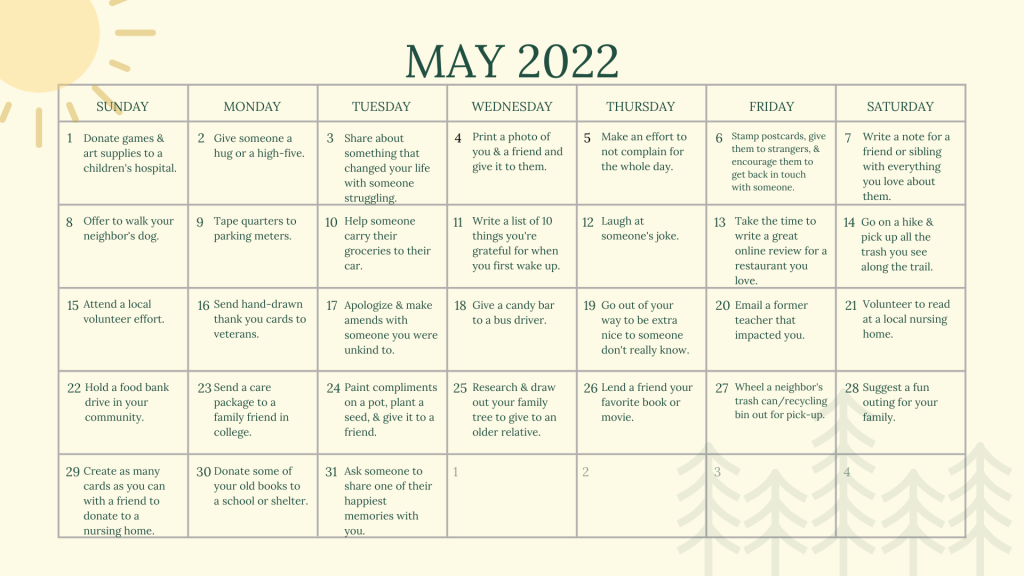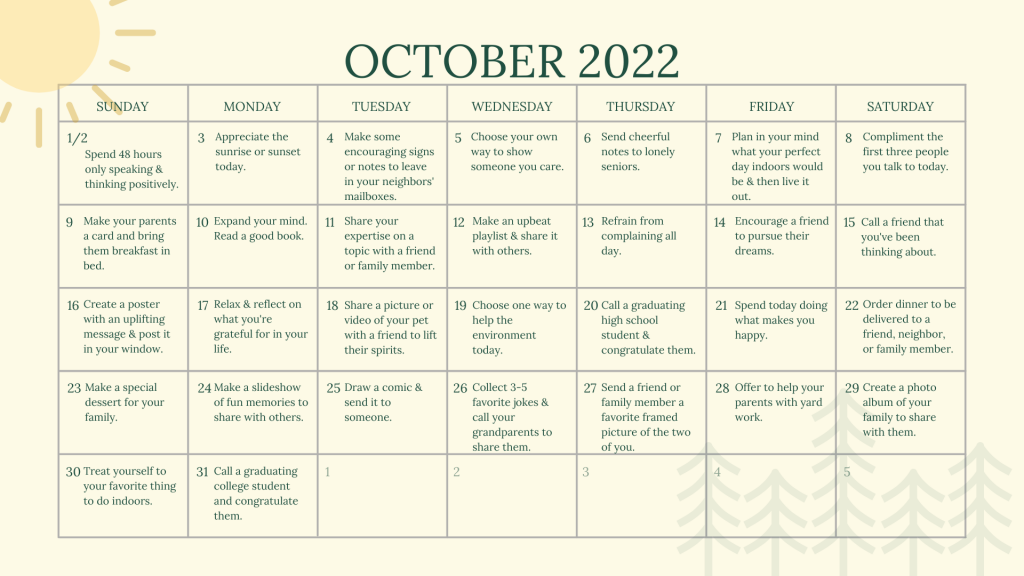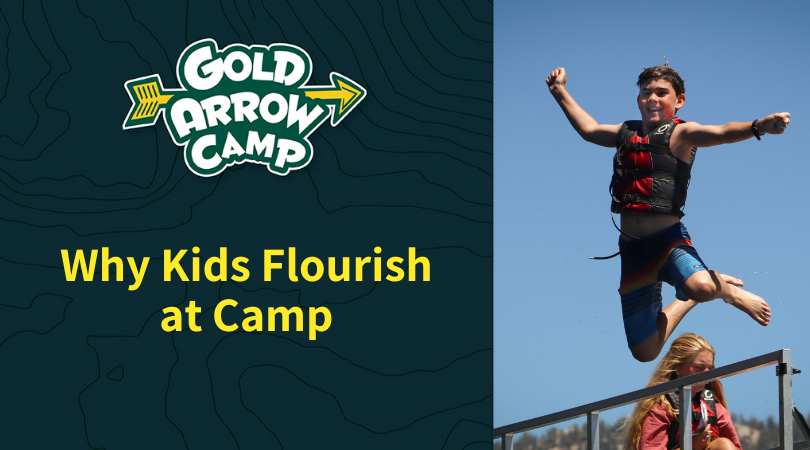
2022 Kindness Calendars
Check out GAC’s Kindness Calendars for the 2022 year! Click on each month for a printable version or click here to print all 12 months!














Check out GAC’s Kindness Calendars for the 2022 year! Click on each month for a printable version or click here to print all 12 months!













Traditionally, psychologists have focused on studying psychological diseases – depression, anxiety, eating disorders, etc. – and their cures. But led by Martin Seligman (University of Pennsylvania), a new breed of psychologists called Positive Psychologists have, for the past decade, been studying the positive side of people. They ask not what is wrong with people, but what is right. Originally, Seligman had a theory of “happiness” outlined in his book Authentic Happiness, but he moved away from only using the word “happiness” to a new theory that focuses instead on well-being or “flourishing.”
Seligman uses the acronym PERMA to define his theory and the five measurable elements he has determined lead to well-being. As I read about each pillar of PERMA in Seligman’s book, Flourish: A Visionary New Understanding of Happiness and Well-being, I kept having “ah-ha” moments. “This happens at camp!” I would think. “And this, too!” In fact, as I read, I determined that ALL of the elements of flourishing that Seligman describes happen at camp. According to Seligman, “No one element defines well-being, but each contributes to it.”
P: Positive Emotion
E: Engagement
R: Relationships
M: Meaning
A: Achievement
P: Positive Emotion
Positive emotion is exactly what it sounds like: feeling happy and having positive thoughts about yourself, the people around you, or your surroundings. At camp, positive emotions are the norm, not the exception. We’re singing; we’re dancing; we’re doing skits that don’t make sense but that cause us to laugh so hard our stomachs hurt. You can almost see a haze of happiness and fun surrounding everyone at camp.
E: Engagement
Seligman’s next element, engagement, describes when one is interested in and connected to what they are doing. At camp, kids are constantly exposed to new experiences and challenges – both recreational and social – that get them interested and excited to learn. They’re pushed to get outside their comfort zone and really engage.
R: Relationships
We all know that positive relationships are one of the main contributors to our happiness in life, so it’s no surprise that relationships are an important pillar of Seligman’s theory. Everyone comes to camp to see their old friends, make new friends, and just spend quality time connecting with others and building positive relationships. And camp is like no other place for that.
M: Meaning
According to Seligman, meaning comes from “belonging to and serving something you believe is bigger than the self.” Being a member of a cabin group at camp helps kids gain an understanding of how they are valued by others. For some kids, camp is the first place where they understand what it means to be a valued and accepted member of a community. Kids learn that they are important and valued members of their cabin group, and they discover their character strengths through recognition from peers and counselors.
A: Achievement
People flourish when pursuing goals or the mastery of a skill. Every day at camp, kids have the opportunity to try new things and master new skills. Some kids arrive at camp with a specific goal: a bull’s eye at archery or getting up on a slalom water ski. But others simply practice and work towards improving or challenge themselves to try something that frightens them – like completing the ropes course. And all of their progress and little achievements add to kids’ flourishing at camp.

Audrey “Sunshine” Monke has been the owner of Gold Arrow Camp since 1989. She is the author of the 2019 parenting book, Happy Campers: 9 Summer Camp Secrets for Raising Kids Who Become Thriving Adults. “Sunshine” has been writing and podcasting about summer camp, well-being, social skills, and parenting at Sunshine Parenting since 2012.